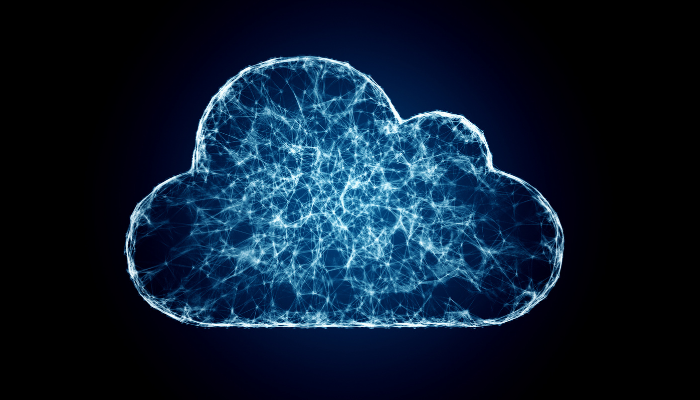
According to the U.S. National Institute of Standards and Technology (NIST), cloud computing is a technology that provides access to non-local resources such as networks, servers, storage, applications, and services.
In other words, this means that you can gain access to resources from devices other than your own. So how are public and private clouds different?
Public cloud
A public cloud is a form of cloud service that provides users with IT infrastructure over the internet. This IT infrastructure may include servers, storage, networks, and software, among others. Enterprises or individuals who are a cloud user receive resources from a Cloud Service Provider (CSP) to operate the service. This type of cloud service helps companies reduce the cost of investing in setting up server infrastructure hardware because companies only have to pay for the amount of cloud storage they require.Another advantage of a public cloud is that you can flexibly increase your resources as needed. Major examples of a public cloud are AWS (Amazon Web Service), Microsoft Azure, and Google Cloud.
Private Cloud
 A private cloud is an aptly named service that provides private IT infrastructure to specific users or businesses within a network. Most companies purchase and use some type of private cloud service. One of the biggest advantages of using a private cloud is that companies can directly manage, maintain, and operate their private cloud. Since they have the authority, it is much more flexible and safer than a public cloud because it is limited to authorized users only. Due to these characteristics, when a company needs to comply with strict security regulations, they are more likely to adopt a private cloud.
A private cloud is an aptly named service that provides private IT infrastructure to specific users or businesses within a network. Most companies purchase and use some type of private cloud service. One of the biggest advantages of using a private cloud is that companies can directly manage, maintain, and operate their private cloud. Since they have the authority, it is much more flexible and safer than a public cloud because it is limited to authorized users only. Due to these characteristics, when a company needs to comply with strict security regulations, they are more likely to adopt a private cloud.
Benefits of cloud storage
Especially since the events of 2020, there are several advantages of using a cloud. No one could have expected the rapid transition of daily business to the current remote working, or working from home environment. Many companies were not prepared for this crisis; one of the easiest ways they chose to save and share data within the company network was through the cloud. The capacity to collaborate with your teammates from different places made their work very convenient. Cloud storage saves all the changes that were made in the document and reflects it on every other device that is synced to that storage. Additionally, since everything is saved in the cloud, those documents or projects do not occupy any storage on your hardware. Businesses can outsource storage problems by using cloud storage services. Online data storage also helps reduce the expenses of internal resources because these companies do not need any in-house infrastructure, power, or support personnel to manage and store data. However, everything has its downsides.
Risks of cloud storage
 Saving sensitive data in a place, not under your company’s direct control can be a concern for everyone, but saving it on a hard drive may not be a feasible alternative.One of the biggest risks of cloud storage is privacy. Due to attackers attempting to steal personal and company information, having the right cybersecurity service is a must.Since most companies around the world are working remotely these days, a lot of data is being saved and shared through the cloud. Being able to open files through different devices such as mobile devices and personal laptops is a big advantage, but they must also set up new security procedures. If employees do not take extra precautions with their personal devices, they may let hackers into their company’s network. This means that their data is now in the hands of a malicious third party who can exploit and sell previously secure information. Therefore, having a security game plan in place can help reduce both the possibility of being hacked and any potential damages that the company can receive should there be a breach.
Saving sensitive data in a place, not under your company’s direct control can be a concern for everyone, but saving it on a hard drive may not be a feasible alternative.One of the biggest risks of cloud storage is privacy. Due to attackers attempting to steal personal and company information, having the right cybersecurity service is a must.Since most companies around the world are working remotely these days, a lot of data is being saved and shared through the cloud. Being able to open files through different devices such as mobile devices and personal laptops is a big advantage, but they must also set up new security procedures. If employees do not take extra precautions with their personal devices, they may let hackers into their company’s network. This means that their data is now in the hands of a malicious third party who can exploit and sell previously secure information. Therefore, having a security game plan in place can help reduce both the possibility of being hacked and any potential damages that the company can receive should there be a breach.
Conclusion
Cybersecurity tools that can secure company data from hackers are a must when working remotely or when using a cloud service. Not all cybersecurity providers provide the exact services and not all organizations need the same security. The best way to protect your data is by looking for a provider that can cover the specific security needs of your company.For example, Cloudbric’s Remote Access Solution (RAS) provides a simple and secure way for any organization to connect remote employees and help users access private networks securely. The hassle-free cloud-based remote access solution is equipped with additional security features that monitor all traffic and block out hacking attempts and DDoS attacks. Both enterprises and small to mid-sized businesses can benefit from having such a solution in place as workplace standards continue to change around the world.





